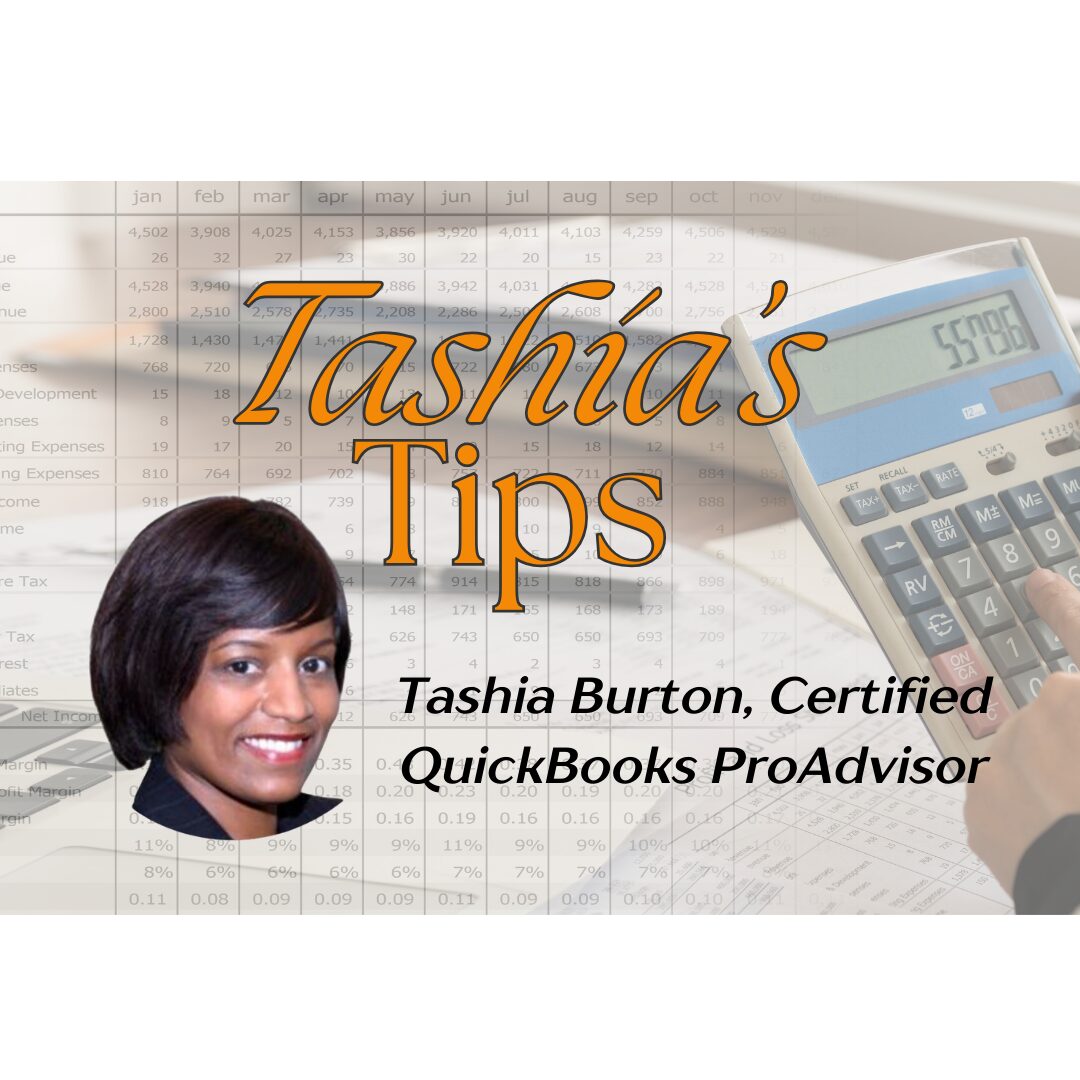Banking+ recently sat down with Tashia Burton, owner of BookeeperPros in Wayne, Pa. Specializing in recordkeeping for small businesses, with a focus on the real estate industry, BookeeperPros’ expertise runs the gamut of small business needs.
Burton has been working with bankers and credit union employees for years. And she’s seen a lot.
One client provided her with a memorable challenge. “[He] literally started with a drawer of ripped up, handwritten notes,” Burton says. “The old joke is that the client has a ‘shoebox full of receipts.’ Well, this guy literally unhooked the entire junk drawer from his kitchen and brought it to me to help figure out what the heck was going on in his company.”
Having strong relationships with bankers, Tashia is constantly being called upon to help their clients with QuickBooks related issues.
How Bankers Can Help with Bookkeeping
Experiences like that with small business owners enable Burton to provide some simple QuickBooks tips for banking and financial services professionals. When these professionals then pass the advice onto banking clients, they can help in tracking customers’ numerous and complex business details.
Burton advises: “The first thing a small business owner needs is a good banker. Eventually, they need a bookkeeper. Until then, the banker or credit union employee is their lifeline. Yet, so many bankers are not trained on QuickBooks or other bookkeeping practices.”
Bankers obviously play a crucial role in helping business owners manage their finances efficiently. Below are Burton’s essential tips on how banking professionals—alongside bookkeepers—can help business owners save both time and money.
Tip 1: Separate Bank Accounts Matter for Bookkeeping
Burton remembers working with a business owner who hadn’t kept up with his books at all. He was a nice guy, passionate about his work, but the financial side of things was a complete mess.
When she started diving into his finances it was like opening a Pandora’s box. There were so many expenses that were clearly personal, and on the flip side, there were business expenses that hadn’t been properly recorded.
“It was a nightmare to sort through,” she remembers. “We had to meticulously separate personal spending from business costs, which took forever. This oversight ended up costing him a lot more in bookkeeping fees because of the extra hours needed to clean everything up. And, to make matters worse, he had to go back and update his taxes to reflect the correct allocations.”
“The whole experience was a huge headache for both of us, and it all could have been avoided if he’d just kept his personal and business finances separate from the beginning.”
Burton therefore strongly recommends that every business owner have separate bank accounts for personal and business expenses. If they haven’t already done this, now is the time.
Bankers can be a great resource in organizing this effort by assisting business owners in opening separate accounts for each situation.
Simplified Bookkeeping, Accurate Expense Classification
By having separate bank accounts, business owners can ensure their expenses are properly classified, which is vital for maximizing business deductions. This separation not only simplifies bookkeeping but also reduces the risk of errors and helps avoid potential IRS issues. It provides a clear and accurate picture of the business’s financial health, making it easier to track income and expenses.
Tip 2: Streamline Bookkeeping with View-Only Bank Access
Burton has a client who’s a painter, and this time of year, he’s swamped with work. A few months ago, he bought a new truck, and it needed to be allocated properly on his financial statements, particularly accounting for the loan principal and interest expenses separately.
For the past month or two, Burton has been trying to get the painter’s bank to provide her with “read-only” access to his bank statements, enabling her to manage his expenses accurately. Unfortunately, the request has hit a brick wall with the bank, and the institution hasn’t granted the needed access.
As a result, her client has to upload his bank statement every month so she can allocate the expenses correctly.
“It’s an extra hassle for him, especially when he’s already so busy,” Burton says. “If we could even get ‘view-only access,’ it would streamline everything and save him a lot of time and stress.”
Monthly reconciliation is a crucial task for business owners and bookkeepers. Ensuring that all bank statements are uploaded timely into QuickBooks to facilitate the monthly reconciliation can be tedious and time-consuming. One effective way to streamline this process is by recommending that business owners give their accountants and bookkeepers “view-only” access to their accounts.
How Banking View-Only Access Helps
With view-only access, bookkeepers can securely and directly obtain all necessary statements without involving the business owner, saving a significant amount of time each month. This access allows the financial team to keep the books up-to-date and accurate, ensuring smooth and efficient financial management.
Tip 3: Avoid QuickBooks Headaches, Get ProAdvisor Support
Last year, Burton’s friend Barry, a realtor, decided to sign up for QuickBooks Online to manage his finances more efficiently. Confident he could handle the setup on his own, he quickly ran into trouble. Transactions weren’t importing correctly, and he was seeing duplicate entries everywhere.
The process became stressful and time-consuming as Barry struggled to fix the errors. Frustrated, he decided to hire Tashia. With professional help, the setup was completed accurately and efficiently, saving Barry a lot of headaches and ensuring his finances were in order.
Approximately 75 percent of business owners use QuickBooks as their accounting platform. However, the onboarding process for setting up banking—including bank feeds—can be challenging. Bankers should direct business owners to seek support from a QuickBooks ProAdvisor to ensure a smooth setup process.
The Value of a QuickBooks ProAdvisor
QuickBooks ProAdvisors are experts in the platform and can provide invaluable assistance during the setup process. Their expertise ensures that bank feeds are correctly configured, allowing for seamless integration and accurate financial tracking.
If bank clients encounter any difficulties or need additional bookkeeping assistance, recommend they reach out to a professional for help.
Tashia’s Top Bookkeeping Tips for Business Success
Following these tips can significantly enhance the financial management processes for business owners, ensuring greater efficiency and accuracy. Bankers’ support is invaluable in helping owner-operators focus on what they do best: running and growing their businesses.
So, the next time a client has bookkeeping questions, remember Tashia’s Tips:
- Maintain Separate Bank Accounts: Encourage clients to keep their personal and business finances separate. This simplifies bookkeeping, maximizes deductions, and provides a clearer picture of the business’s financial health.
- Facilitate Monthly Reconciliation with QuickBooks Access: Recommend clients grant their bookkeepers “view-only” access to their bank accounts. This allows for smoother and more efficient management of expenses and financial records.
- Guide Business Owners to QuickBooks ProAdvisor Support: Advise clients seeking to use QuickBooks to consider seeking help from a QuickBooks ProAdvisor. ProAdvisors can ensure a smooth setup process and accurate financial tracking.
Finding a trusted resource who can help business owners navigate the complexities of financial management is invaluable. Bankers looking to connect customers with a knowledgeable resource for setting up bank accounts with QuickBooks (and other bookkeeping needs) can refer them to QuickBooks ProAdvisor, Tashia Burton of BookeeperPros. She can be reached at (610)570-9555 or tashia@bookeeperpros.com.



















